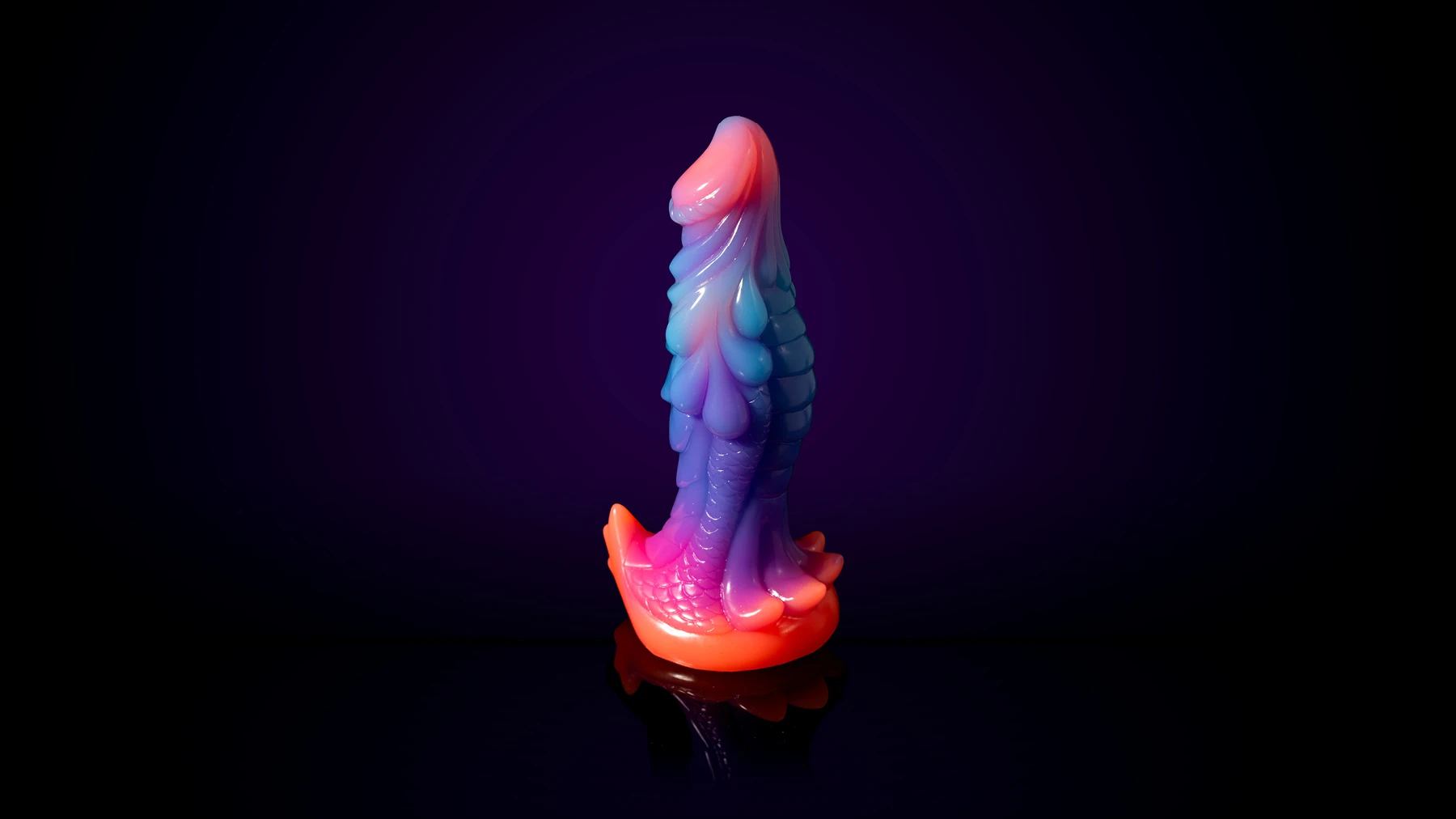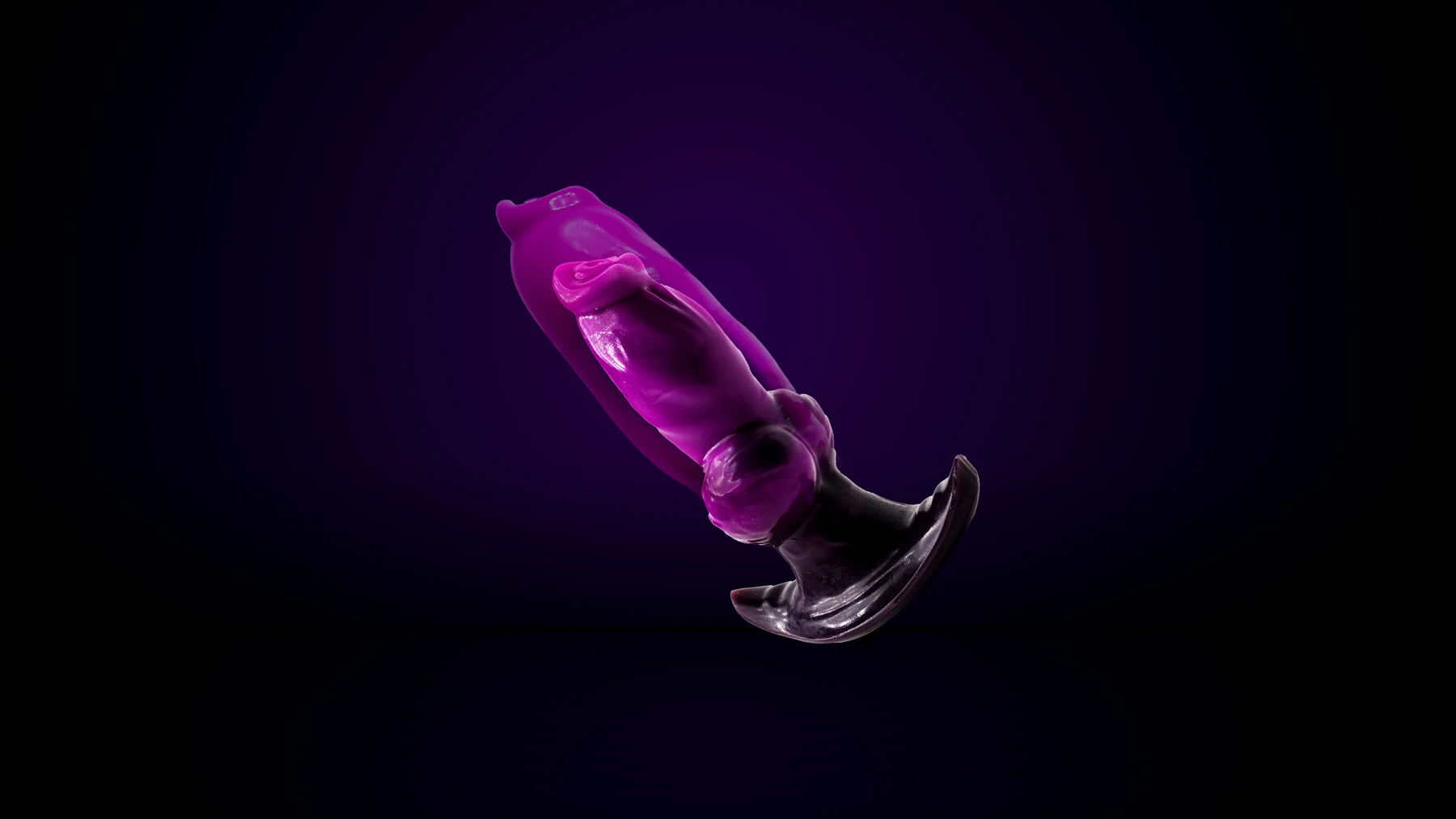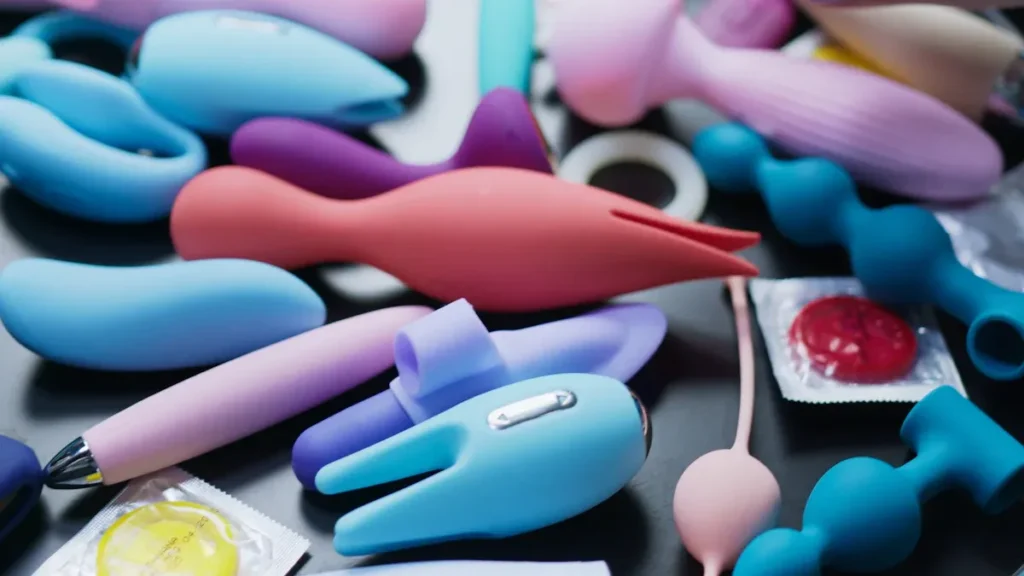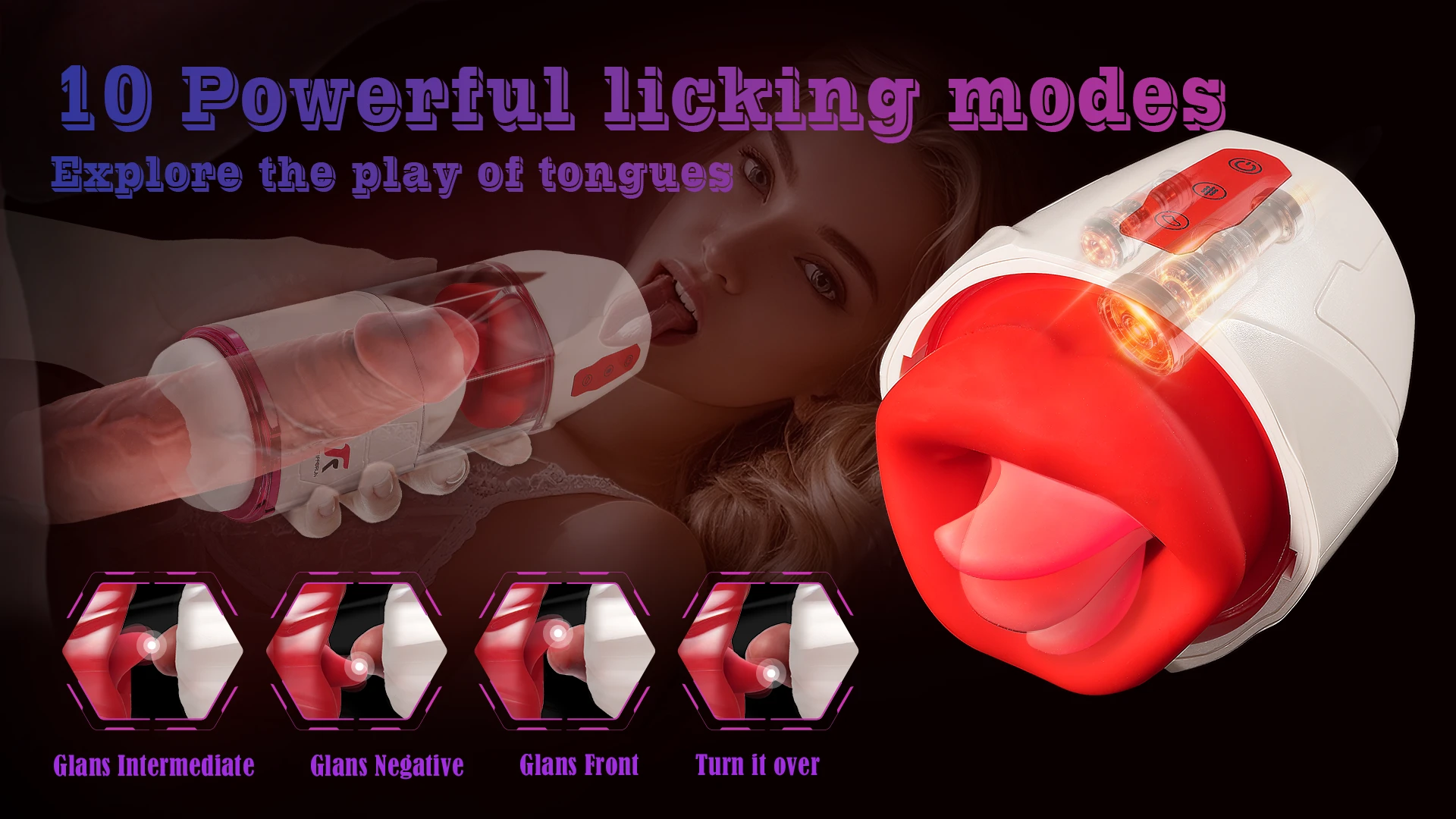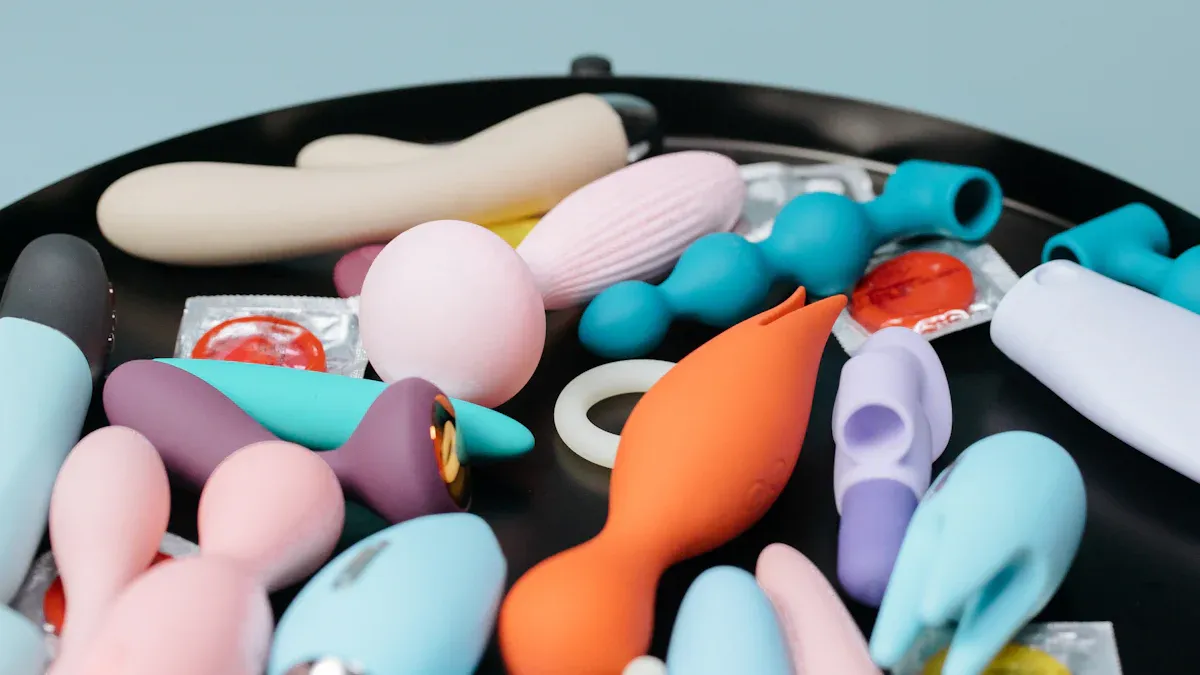What Are the Dangers of Using PVC Dildos
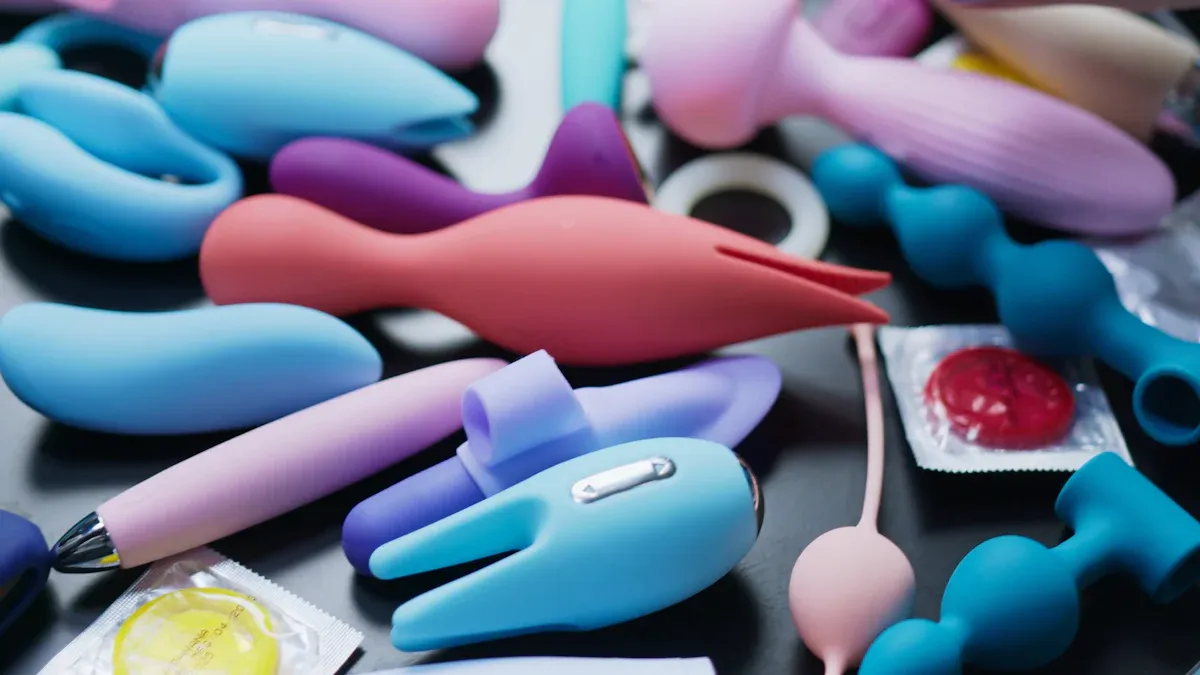
PVC dildos are not safe to use on your body. Using a PVC dildo can cause serious health problems. Dangerous chemicals like phthalates, lead, and cadmium can come out. This happens more when there is heat and moisture. These chemicals can mess up your hormones and make your skin sore. PVC dildos have tiny holes that are hard to clean. Bacteria and fungi can grow in these holes. This makes it easier to get an infection. Sensitive places, like when using a Vibrating Dildo, ebony riding dildo, or Dog Dildos, soak up these chemicals fast. You should have safe choices. Always pick safe materials to lower health risks and keep yourself safe.
What Is PVC
PVC means polyvinyl chloride. You see this plastic in many places. People use pvc to make pipes and window frames. It is also in floors and medical tubes. There are two main types of pvc. One type is hard and strong. Builders use hard pvc for buildings. The other type is soft and bends easily. Soft pvc is in cables, blood bags, and raincoats. PVC is popular because it lasts a long time. It does not break down with chemicals. It is also cheap to make.
Why PVC Is Used in Sex Toys
PVC sex toys are easy to find in stores. They do not cost much money. Factories can shape pvc into many forms. This is why there are so many pvc dildo designs. Here are some reasons companies pick pvc for dildos:
pvc is cheap, so you spend less money.
It is simple to shape, so you get many styles.
pvc can be soft or hard, depending on how it is made.
You can find pvc in many colors.
Property | Description | Relevance to Sex Toys |
|---|---|---|
Versatility | Can be soft or hard depending on production methods | Offers many textures and firmness options |
Porosity | Soft pvc is porous, hard pvc is less so | Porous toys are harder to clean |
Affordability | Low cost compared to other materials | Makes pvc sex toys cheaper |
Moldability | Can be shaped into almost any design | Allows for creative dildo shapes |
Health Concerns | May contain phthalates and other chemicals | Raises safety issues for intimate use |
⚠️ Note: Even though pvc sex toys are cheap and easy to buy, they are not safe for your body. The tiny holes in pvc can trap germs. Chemicals can come out, especially with heat or water.
How PVC Differs from Body Safe Sex Toys
It is important to know which materials to avoid in sex toys. pvc is not safe for your body. It has tiny holes and can have bad chemicals like phthalates. These chemicals can hurt your health. Body safe sex toys use silicone, glass, or metal. These are not porous, so they do not hold germs. They are easy to wash and do not leak chemicals.
Material | Porosity | Chemical Safety | Durability | Cleaning | Cost |
|---|---|---|---|---|---|
pvc | Porous | May contain toxins | Low to moderate | Hard to sanitize | Low |
Silicone | Non-porous | Body-safe | Very high | Easy | Higher |
Glass | Non-porous | Body-safe | High | Easy | Higher |
Metal | Non-porous | Body-safe | Very high | Easy | Highest |
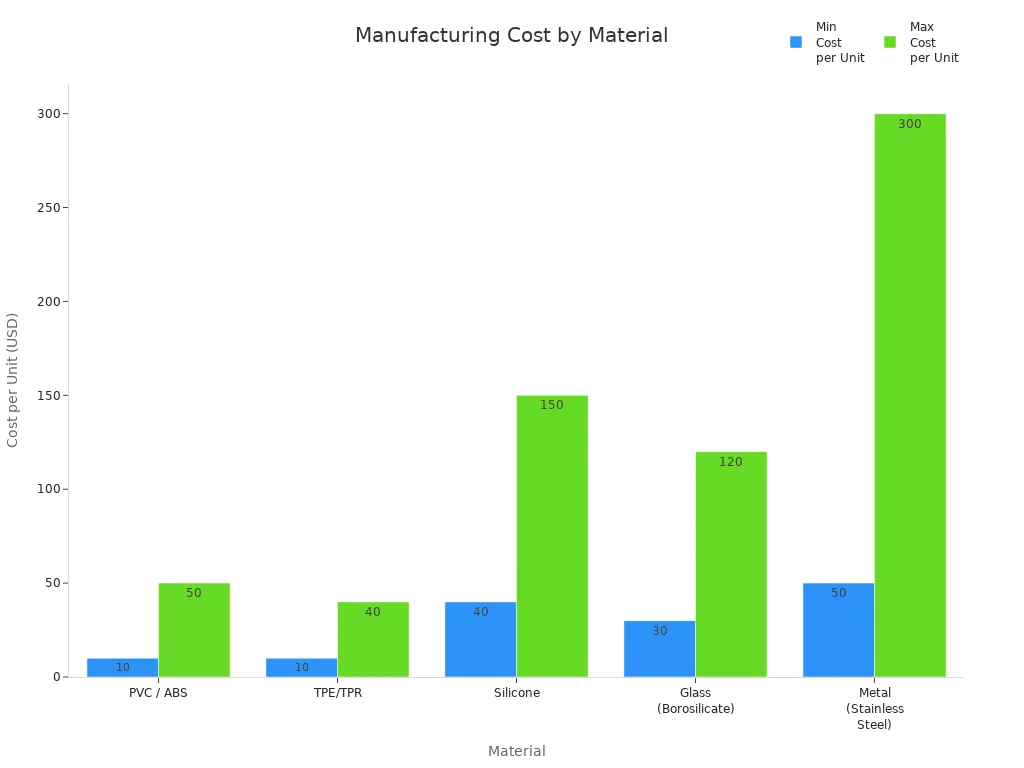
You should pick sex toys made from silicone, glass, or metal. These materials help keep you healthy and safe. Do not use pvc sex toys if you want to stay safe. Remember, body-safe materials do not trap germs or leak chemicals. They last longer and are simple to clean.
PVC Dildos: Health Risks
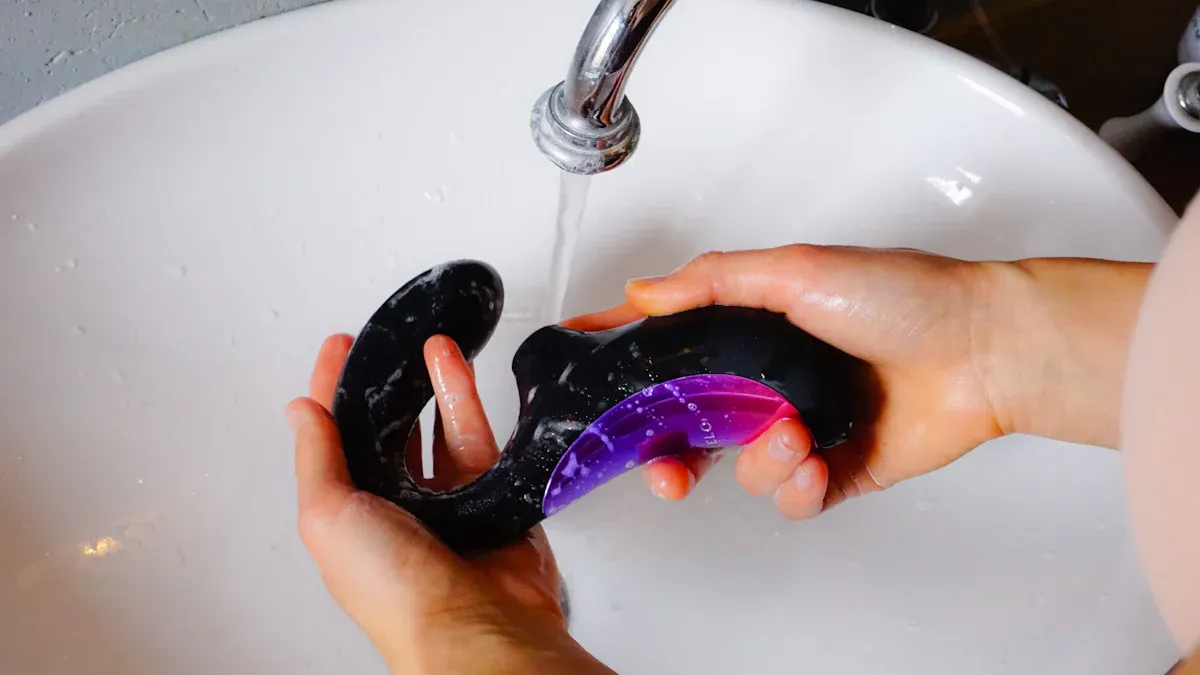
Chemical Risks: Phthalates and Toxins
When you use pvc dildos, your body can touch phthalates and other bad chemicals. Phthalates are used to make pvc soft and bendy. Many pvc sex toys have a lot of phthalates. Sometimes, they make up more than half the toy’s weight. These chemicals can leak out when the dildo gets warm or wet. Your skin, especially in sensitive spots, can soak up these chemicals fast.
Phthalates can mess with your hormones. They change how your body works. Studies show phthalates in pvc dildos can cause health problems. These problems include hormone changes, early puberty, asthma, allergies, weight gain, and even cancer. Some phthalates, like DEHP, are very dangerous. The U.S. Consumer Product Safety Commission says they are unsafe. Using pvc sex toys can also hurt your liver, thyroid, and parts that help you have babies. Pregnant people have more risks, like birth defects and losing the baby.
You might also get tiny plastic pieces from pvc dildos. These small bits can come off during use. They can carry bad chemicals deeper into your body. Even if a pvc dildo says it is phthalate-free, it can still have other harmful chemicals from how it was made. The dangers of pvc are not just about phthalates.
⚠️ Note: Phthalates are not the only danger. Other toxins in pvc sex toys can hurt you, even if the label says “phthalate-free.”
Here is a table showing the main health risks of pvc dildos:
Health Risk Category | Description and Effects |
|---|---|
Chemical Toxicity (Phthalates) | Hormone disruption, early puberty, asthma, allergies, reduced testosterone, cancer risk, birth defects, and more. |
Infection Risk (Porosity) | Bacteria and viruses can hide in the toy, making cleaning hard and increasing infection risk. |
Cross-contamination Risk | Using the same toy for different body parts can spread harmful bacteria. |
Phthalate-free PVC Concerns | Even without phthalates, pvc can still be unsafe due to other toxins. |
Additional Concerns | Micro- and nano-plastics can enter your body and carry toxic chemicals. |
Porosity and Bacterial Risks
Pvc dildos have tiny holes and rough spots you cannot see. These holes trap germs and body fluids. Even if you wash your pvc dildo, germs can stay inside. Non-porous materials like silicone or glass do not have these problems. They are much easier to clean and keep safe.
Studies show bacteria stick to pvc more than to silicone. The rough texture of pvc gives germs more places to hide. Over time, this can make layers of bacteria called biofilms. Biofilms are very hard to get rid of. Using pvc sex toys can raise your risk of infections. These include urinary tract infections, yeast infections, and bacterial vaginosis. You can also get sexually transmitted infections like chlamydia, gonorrhea, and herpes.
Porous sex toys can hold onto germs and fluids, even after cleaning.
Infections linked to pvc dildos include:
Bacterial vaginosis (BV)
Yeast infections
UTIs
STIs (chlamydia, gonorrhea, syphilis, herpes)
Fecal bacteria (E. coli, salmonella, shigella)
Using the same dildo for anal and vaginal play without cleaning can spread germs and raise your risk of infection.
Soap and water are not enough to make pvc sex toys safe. You cannot fully clean them.
💡 Tip: Use condoms on pvc dildos if you must use them. This helps lower the risk of infection, but using non-porous toys is safest.
Signs of Unsafe PVC Dildos
You should always check your pvc dildo before you use it. Pvc sex toys can break down over time. When this happens, they become even less safe. Watch for these warning signs:
Colors that fade or look different
Bad or strange new smells
Black spots, mildew, or mold
Tears, cracks, or bumps on the surface
Changes in shape or how it feels
If you see any of these signs, stop using the dildo right away. These changes mean the toy is breaking down and cannot be cleaned well. Mold and germs can grow inside, making it very unsafe. Oil-based lubricants can make pvc break down faster. Always check your toys before each use to keep yourself safe.
🚫 Alert: If your pvc dildo shows any of these signs, throw it away. Using a damaged toy makes it easier to get sick or touch bad chemicals.
You face many health risks of pvc when you use these toys. The risks include touching bad chemicals, getting infections, and the toy breaking down. Picking safe materials for your sex toys is the best way to protect your health.
Myths About PVC Safety
“Phthalate-Free” Claims
Some dildos say “phthalate-free pvc” on the label. You might think this means they are safe. This is not true. Many people believe toys without phthalates cannot hurt you. But companies often use other chemicals instead of phthalates, like DOTP. Experts are not sure if these new chemicals are safe for your body. Some of them might still mess with your hormones or cause health problems.
PVC has vinyl chloride in it. Vinyl chloride can cause cancer. There is no safe amount of this chemical. Some countries, like Canada, do not allow pvc in kids’ toys because of these dangers. Sex toys do not have the same strict rules. Even if a dildo says “phthalate-free,” it might still have other harmful things like phenol or cadmium. The label does not mean the toy is body-safe.
🛑 Note: Sex toy companies do not have strong safety rules. Even brands you trust might use unsafe stuff. Always check what your toys are made of. Pick body-safe toys when you can.
Cleaning and Sterilization Misconceptions
Many people think washing pvc dildos makes them safe. This is not correct. PVC is porous and has tiny holes. These holes trap germs and fluids. You cannot clean or sterilize these toys all the way, even with soap and water. Strong cleaners like bleach or alcohol can hurt pvc and make it fall apart faster.
Non-porous toys, like medical-grade silicone, glass, or stainless steel, are much safer. You can boil them or put them in the dishwasher to kill germs. You cannot do this with pvc. Even if you clean it well, germs can hide inside and cause infections. Using condoms on pvc dildos helps a little, but it does not make them totally safe.
Porous toys like pvc:
Hold germs and are hard to clean
Can cause rashes, burning, and infections
Break down over time and let out more chemicals
You should always pick clean sex toys made from non-porous, body-safe materials. This is the best way to keep yourself healthy and safe.
Choosing Body Safe Sex Toys
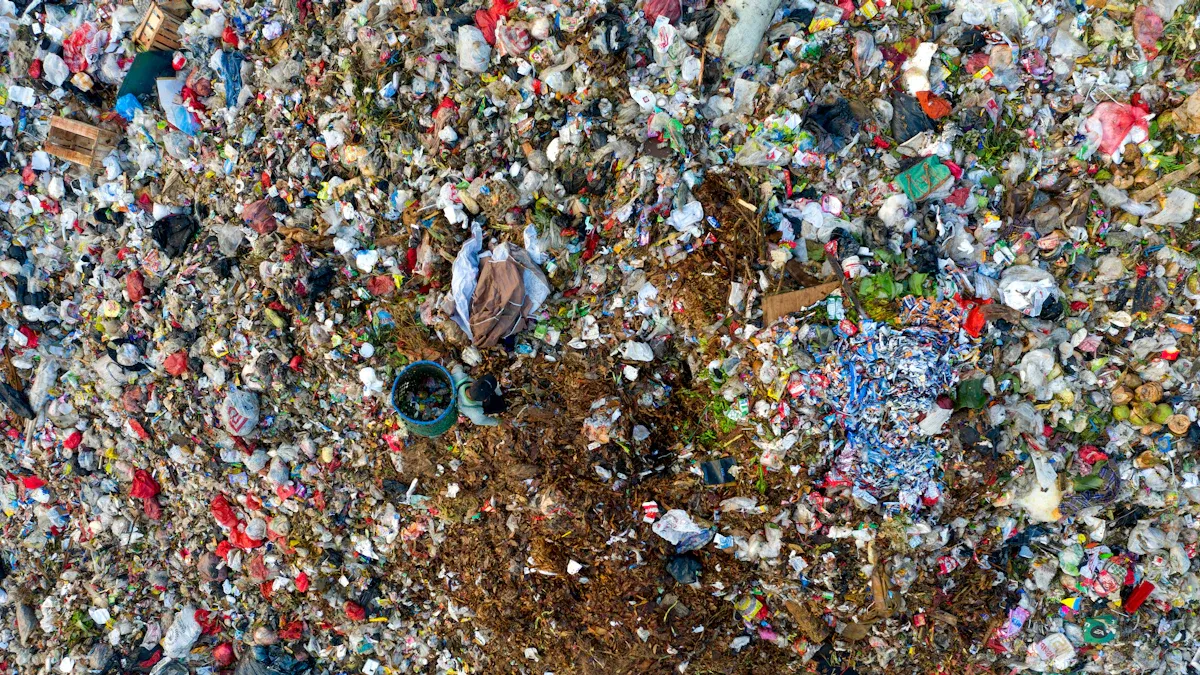
How to Identify PVC Dildos
You can spot pvc sex toys by checking a few key details. Start by reading the product label or online description. If you see pvc listed, avoid the toy. Look for words like “phthalate-free,” “non-toxic,” or “body safe sex toys” for safer options. Cheap dildos often use pvc, so be careful with low prices. Buy from trusted brands that focus on safer sexual health products. Examine the dildo for a shiny, sticky, or see-through look. A strong plastic smell or blue and black spots can also mean pvc. If the toy feels soft and loses shape, it may be pvc. When in doubt, ask the seller about the material or skip the purchase.
Checklist to identify pvc dildos:
Read packaging for material info.
Watch for “phthalate-free” or “body-safe” claims.
Be wary of very cheap dildos.
Buy from reputable sellers.
Check for sticky, shiny, or smelly surfaces.
Look for mold spots or shape changes.
Ask the seller if unsure.
Avoid if you cannot confirm the material.
What to Do If You’ve Used PVC
If you have used pvc sex toys, you should clean them right away. Use mild soap and warm water, but remember, you cannot fully sanitize pvc. Never use hot water or harsh cleaners, as these can damage the toy. If your dildo has batteries or is electric, do not soak it. If you feel any irritation, burning, or see signs of infection, talk to a doctor. Switch to safe materials for sex toys like silicone toys, glass, or metal. These are much easier to clean and keep safe. If you worry about your health after using a pvc dildo, seek medical advice.
💡 Tip: Always choose safe alternatives to pvc sex toys to lower your risk of infection and chemical exposure.
Safer Alternatives: Silicone, Glass, Metal
You have many safer alternatives to pvc sex toys. Silicone toys are flexible, soft, and easy to clean. They do not hold germs and work well with nontoxic lubricants. Glass dildos feel smooth and let you try temperature play. Metal dildos are firm, safe, and easy to sterilize. All these materials are nonporous, so you can clean them with soap and water or even boil them if there are no electric parts. Scientific studies show that medical-grade silicone, glass, and metal lower your risk of infection and chemical exposure. Consumer groups and experts agree that these are the best choices for dildo safety and safer sexual health products.
Material | Porosity | Cleaning | Durability | Special Features |
|---|---|---|---|---|
Silicone | Nonporous | Easy, boilable | High | Flexible, body-safe |
Glass | Nonporous | Easy, boilable | High | Smooth, temp play |
Metal | Nonporous | Easy, boilable | Very High | Firm, temp play, weight |
Choose safe materials for sex toys to protect your health and enjoy worry-free pleasure.
You can get sick if you use a pvc dildo. Studies show pvc lets out bad chemicals like phthalates and trimethyltin chloride. These chemicals can mess up your hormones and might cause cancer. Toys with tiny holes can hold germs. This makes them hard to wash and not safe. Doctors and health groups say to use safe toys. Pick nonporous materials like medical-grade silicone, glass, or metal.
Pick safe sex toys to keep yourself healthy.
Stay away from pvc and jelly toys for safety.
Your sexual health is important. Always make safe choices.
